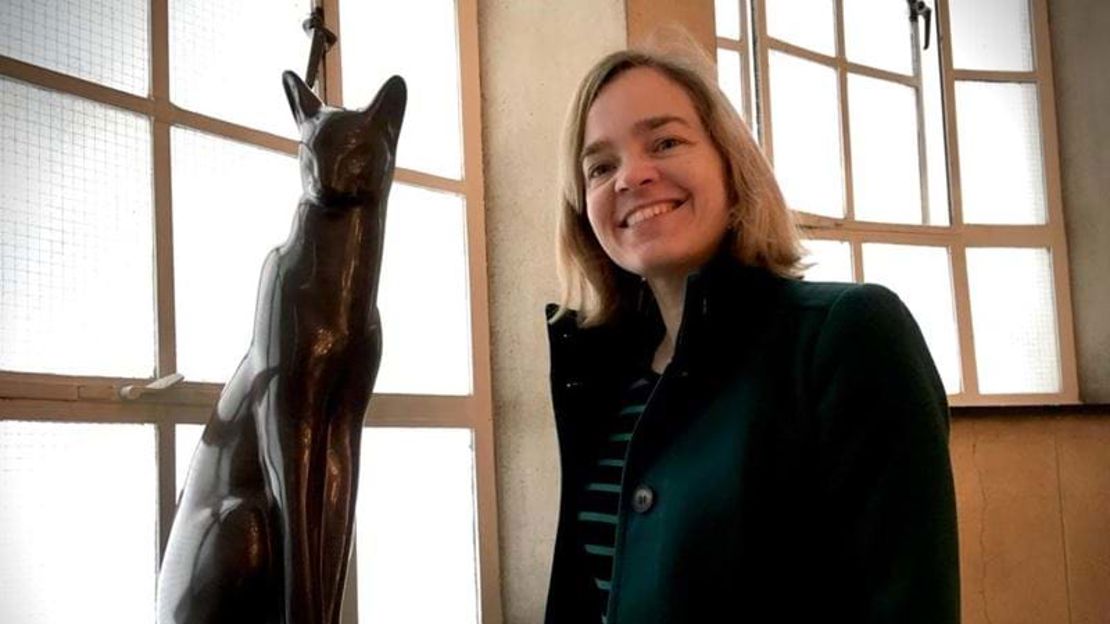Landing a ScreenSkills animation bursary meant freelance motion graphics artist Annette Bowery could turn a personal passion into a full-blown professional pursuit.
ScreenSkills bursaries are designed to provide financial assistance to those looking to enter, progress in, return to, or transfer into the screen industries. Bursaries are supported by the BFI awarding National Lottery funds, industry contributions to the Film, High-end TV, Children’s TV and Animation Skills Funds and through money from the Television Skills Fund targeted at improving diversity and inclusivity.
"I had been freelancing in motion graphics and animation alongside my part-time graphic design job," Annette says. "I was keen to improve my skills with a long-term view to improving my portfolio and showreel."
Like thousands of others working in the creative industries, Annette had been affected by the work and financial fallout due to the Covid-19 pandemic. Without the bursary, Annette would have likely had to put her ambitions on hold. Annette has been freelancing in animation alongside a part-time graphic design job in the music industry.
Annette applied for the Screen Skills animation bursary to pay for the costs of attending Aardman Academy’s course in model-making named 5 Day Sketch to Screen Model Making with Jim Parkyn, via Zoom. Securing the bursary and a place on Aardman's prestigious course meant she was able to continue to expand her skill set.
In her ScreenSkills bursary application Annette noted the Aardman course would give her the opportunity to learn from industry veterans. She would also build a fully animatable model - puppet materials included in the course cost - to use as part of her portfolio in subsequent job applications.
The Aardman course guides participants through the process of model making, beginning with a wire armature and finishing with a fully completed model. "It was a week-long course with model making and costume experts from Aardman, focused on building a stop-motion model based on an initial sketch," Annette says. "We got a really good introduction and overview of a range of techniques, building armatures, and adding clothes, heads, hair, hands and shoes, all in just one week."
The course also helped with bigger picture aspects of model animation, making her more confident with budgeting and beyond. "I understand more about the costs of specific materials for model-making and what to think about for a materials budget," Annette says. "There was tons of really useful practical information."
Before the course, Annette had been using some of the income from a part-time graphic design job to fund her gradual move to animation including buying equipment such as a small stop-motion puppet rig to use. "I am currently using the skills I have learned (via the course) to build puppets for a long-term project which, when finished, I plan to enter festivals and other screening opportunities, as well as improving my portfolio," Annette says.
All Aardman Academy participants are assembled in an online group so people can stay in contact and hear about upcoming opportunities via social media. During the Covid-19 lockdown Annette joined Women In Animation and attended an open virtual meet-up that they scheduled, for the purpose of general networking and learning more about the industry. She also attended the virtual edition of Annecy Animation festival online, including talks on storyboarding by Cartoon Network staff and other masterclasses.
Annette's CV boasts stints with the Royal Shakespeare Company as a digital graphic designer and freelance work with James Oprey, producer and director at Straymoose Productions, creating stick-man animations for an Open University MOOC or graphics for an American TV series.
During lockdown she’s worked with a group of academics called A Bit Lit, including designing an intro sequence for a web series titled Stay at Home Shakespeare for Straymoose Productions.
Other work includes delivering community-based animation workshops since 2015 for not for profit arts and architecture collective RE:Future Collective commissioned by director Elizabeth Jordan.
